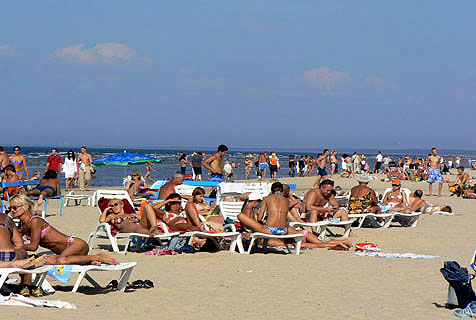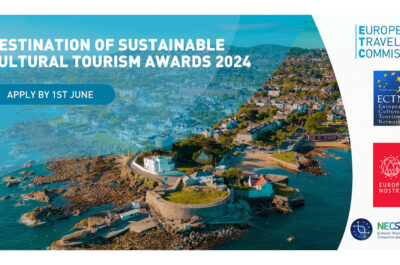32 out of 33 reporting destinations saw growth in 2018 to date, with particularly strong increases from the US and Chinese travel markets. More destinations reported declines from the UK than from any other key source market as the report evaluates the impact of a ‘No Deal’ Brexit on the sector.
BRUSSELS – According to the European Travel Commission's latest report "European Tourism -Trends & Prospects 2018", Europe remains the most visited region in the world, with a 6%1 upswing in international tourist arrivals in 2018 compared to the previous year. This growth continues despite ongoing trade tensions, uncertainty surrounding Brexit and the economic slowdown in the Eurozone and China.
Virtually all reporting destinations (32 out of 33) registered some form of expansion, with travel to Turkey (+22%) continuing its strong recovery , driven by a wide range of source markets and a depreciating Lira. The second fastest growing destination was Serbia, as it continues to benefit from its visa-free access to Chinese passport holders, with reported arrivals 15% higher in the year-to-November compared to the same period a year ago. Malta (+15%) experienced some robust arrivals and overnights growth based on data to August, as its efforts to position itself as a year-round destination materialise. Rounding off the top performers was Montenegro (+14%), which registered solid results due to continued development of tourism infrastructure, and Latvia (+10%), the only Central/Eastern European destination that showed a double-digit expansion (+10%).
Significant outbound travel growth from the US and China was reported again in 2018. Growth from the US has been aided by various economic factors, including a strong dollar against the Euro and Sterling, while 24 out of 30 destination countries reported an increase in the number of visitors from China, thanks to improved air connectivity and visa procedures, as well as an expanding Chinese middle class.
Speaking following the launch of the report, Eduardo Santander, Executive Director of the ETC said: "Despite adverse risks such as tensions in financial markets, uncertainty surrounding the UK’s withdrawal from the EU and the worrisome forward-looking indicators, the European tourism industry has yet again proved resilient in 2018, accounting for over half (51%) of worldwide tourist arrivals. Looking ahead to the plethora of unknowns 2019 has to offer, we are predicting growth over around 3% in international tourist arrivals to the region. These challenges present an opportunity to reorient European and national policy to support the drivers of sustainable tourism growth and to promote long-term development in Europe”.
The potential economic impact of a “No Deal” Brexit
While most destinations reported growth from key source markets in 2018, it is increasingly evident that Brexit-related uncertainty continues to have a negative impact on the sector. According to the report, outbound travel and tourism from the UK will be impacted negatively on all fronts in the event of a ‘No Deal’ Brexit. Negative impacts from economic drivers, airline disruption and increased passport regulation are likely to see up to 8 million fewer outbound trips from the UK.
[1] UNWTO World Tourism Barometer Volume 17. January 2019.
Theodore is the Co-Founder and Managing Editor of TravelDailyNews Media Network; his responsibilities include business development and planning for TravelDailyNews long-term opportunities.



























































































































































































































